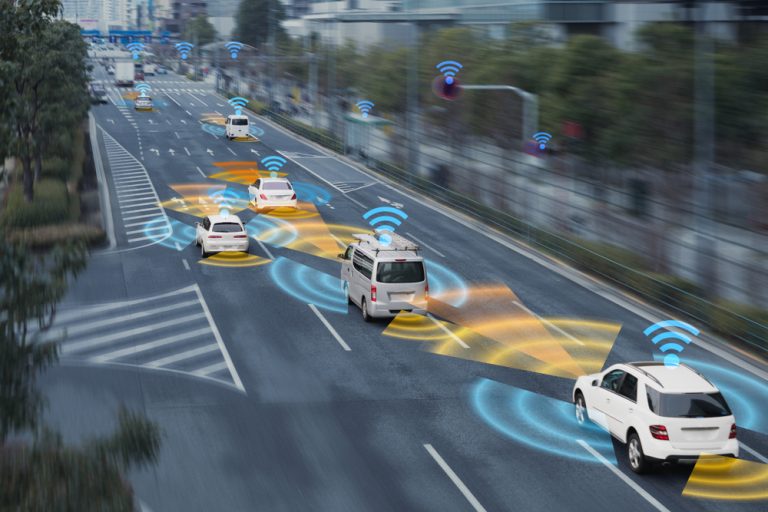US Plans Restrictions on Smart Vehicles with Chinese and Russian Tech
The U.S. Commerce Department is proposing to ban the sale or import of smart vehicles using specific Chinese and Russian technology, citing national security concerns. The proposed ban stems from a government investigation that found potential risks, including the possibility of remote sabotage through hacking and the collection of personal data from drivers.
Commerce Secretary Gina Raimondo explained that the findings raise alarms about the vulnerability of U.S. vehicles to foreign adversaries. “In extreme situations, a foreign adversary could shut down or take control of all their vehicles operating in the United States, all at the same time, causing crashes or blocking roads,” Raimondo said in a statement.
Timing and Scope of the Ban
The proposed regulations would take effect in phases. Starting with the 2027 model year, vehicles using Chinese-made software would be affected. By 2030, the ban would also extend to hardware from these countries. Notably, the rules won’t apply retroactively to vehicles already on U.S. roads.
The rule targets connected vehicles, which covers nearly any modern car or truck equipped with networked technology such as Bluetooth, WiFi, or satellite communications. These technologies, vital for roadside assistance, entertainment systems, and other features, are increasingly considered entry points for potential cyber-attacks.
The US-China Tech Struggle
The proposed rule comes amid an ongoing tech battle between the U.S. and China, the world’s two largest economies. The struggle revolves around controlling future technologies, from semiconductors to artificial intelligence. Chinese firms have been aggressively expanding in sectors like connected vehicles, raising concerns among U.S. officials about the security of these technologies.
In a broader geopolitical context, this proposed ban reflects efforts to secure key U.S. supply chains and limit foreign influence over critical infrastructure. China has made significant inroads in Europe’s connected car market, and U.S. officials fear similar advancements in the U.S. could expose vulnerabilities.
Concerns About Data Security
Raimondo emphasized that this is not a trade issue but a national security matter. “This is not about trade or economic advantage,” she said. “This is a strictly national security action.” She noted that hackers from China or Russia could potentially collect data on U.S. drivers, such as their home addresses, places they frequently visit, and personal habits. This data could put Americans at risk, especially if collected without their knowledge.
Concerns extend beyond vehicles themselves. U.S. officials are worried about the potential for exploitation of electric vehicle charging stations and other infrastructure outfitted with foreign-made hardware or software. Jake Sullivan, the White House national security adviser, explained that if these technologies are compromised, it could lead to major disruptions across U.S. transportation networks.
Chinese Government’s Response
China has denied these allegations, calling the U.S.’s actions discriminatory and unjustified. Lin Jian, a China’s Foreign Ministry spokesperson, responded, “We urge the US side to respect market principles and provide an open, fair, transparent, and non-discriminatory business environment for Chinese enterprises.” Despite these objections, the U.S. continues moving forward with tightening foreign-made technology restrictions.
Economic Implications for Automakers
While the full economic impact of the proposed ban remains unclear, it is expected to raise costs for automakers, especially those relying on Chinese components. The Biden administration plans to release an economic analysis outlining these costs for both manufacturers and consumers.
Some critics argue that the ban may create challenges for automakers, but others see it as a necessary measure to secure the future of the American auto industry. By reducing reliance on foreign technology, U.S. manufacturers could be better protected from cyber threats and supply chain disruptions.
Supporting Autoworkers and the US Auto Industry
The proposed ban is also part of a broader strategy to support American autoworkers. On the same day as the Commerce Department’s announcement, the White House unveiled several initiatives to boost auto industry jobs, particularly in Michigan—a key battleground state for the Biden administration.
These initiatives include $1 billion in financing for small- and medium-sized auto suppliers and expanded training programs for workers involved in the auto supply chain. Vice President Kamala Harris highlighted these efforts, stating, “Investing in the ambitions and aspirations of our people is the best way to grow the American economy and the middle class.”
Moving Forward
The Commerce Department’s proposed rule will be open for public comment for 30 days, with a final version expected before the end of President Biden’s administration. Once the regulation is finalized, automakers will have until August 2025 to ensure compliance.
In the meantime, U.S. officials continue to evaluate the risks posed by foreign-made technology in critical infrastructure, taking steps to protect consumers and prevent potential cyber-attacks. While the debate over security and trade tensions with China continues, the U.S. government remains focused on safeguarding national interests in an increasingly connected world.


